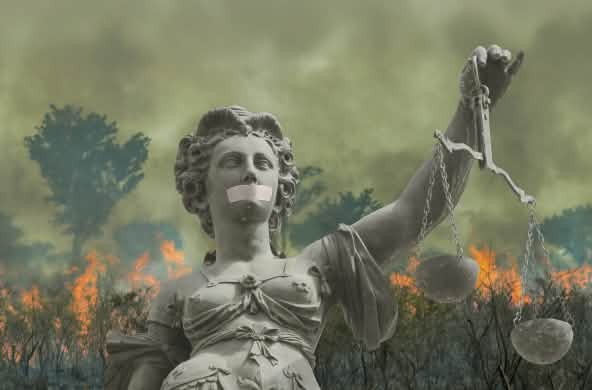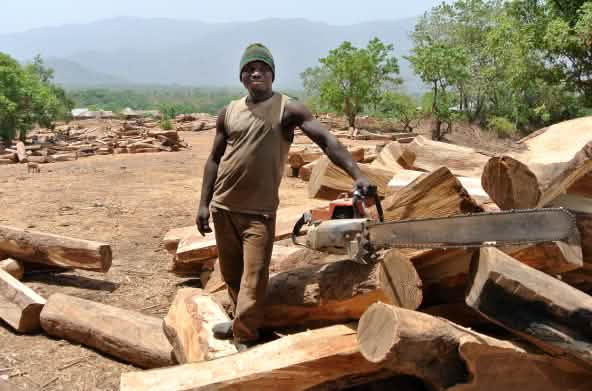Completed campaign
Nicaragua: German Tax Money Destroys the Environment
Two conflicting projects in Nicaragua are being financed by the German government. Public funds are going toward the expansion of a palm oil plantation. Environmentalists are sounding the alarm, however: the plantation poses a threat to a strictly protected biosphere reserve. Small farmers are also protesting the project. The monocultures endanger their fields, which were also funded by German development aid. Please sign our petition against the funding of environmental destruction.
The small farmers’ cooperative in El Castillo, Nicaragua, is perplexed. In recent years, they invested considerable effort into learning ecologically sustainable techniques for growing a variety of agricultural products, improving their lives dramatically. But now, their fields are threatened by a palm oil plantation. “The odd thing is that both the expansion of the plantation and the small farmers are being supported by German development aid,” noted Saúl Obregón of Fundacion del Rio. “Yet the oil palm monocultures are threatening years of work by the farmers’ cooperative and endangering the environment.”
Please support the farmers in Nicaragua and demand that the responsible ministers put an end to wasting public funds on environmentally damaging projects.
The empty promise of palm oil
The Palmares de El Castillo SA (PALCASA) plantation already covers 4,000 hectares. According to media reports, it belongs to Ramiro Ortiz, one of the Central American country’s most powerful businessmen. PALCASA’s palm fruit is intended for the production of edible oils and biodiesel. The company promised local farmers work and a good income, for which some the families sold their farms and gave up agriculture. The plantation is now to be expanded – with a €5.4 million grant from the German government. In the view of the German Ministry for Economic Cooperation and Development, “the cultivation of oil palms in the region represents intelligent land use.”
The farmers’ cooperatives – a successful project without a future?
Obregón criticized the fact that the wages on the plantation are so low that they cannot compensate the sale of the farms, especially in light of the success of small farmers in Rio San Juan, a region in southwestern Nicaragua. The farmers have been trained in green agricultural techniques since 2002 and grow fruit in mixed cultivation for their own use and for sale. Their crops include corn, beans, and oranges.
Unique biodiversity – the Indio Maíz Biological Reserve
Indio Maíz in southeastern Nicaragua is the second largest rain forest reserve in the country. Between 70 and 80 percent of all species of the Central American country live in the reserve, a fifth of which are endangered. The reserve is home to big cats like jaguars and rare manatees. It is also a unique bird sanctuary with more than 270 different species. Three Nicaraguan environmental groups, the Humboldt-Zentrum, Fundación del Rio and the Luciernaga foundation documented the negative environmental impacts of the plantation in a study and a film.
“What could be more intelligent than land use that protects people and the environment?” asks Obregón. “The experience of the last ten years has shown that the small farmers in Rio San Juan operate an agriculture which is good for both humans and their surroundings. The oil palm is not a solution for them.”
Links:
Click here for further information on the Indio Maíz Biological Reserve.
To
Federal Ministry of Economic Cooperation and Development
Mr. Dirk Niebel, Federal Minister
Mrs. Gudrun Kopp, Parliamentary State Secretary
In Copy:
DEG - German Investment Corporation
Dr. Michael Bornmann, Herrn Philipp Kreutz, Members of DEG’s Management Board
Federal Ministry of Economics and Technology
Mr Philipp Rösler, Federal Minister, Chairman of the SME Advisory Council
Federal Ministry of Finance
Dr. Wolfgang Schäuble, Federal Minister, Chairman of the SME Advisory Counci
Dear Ladies and Gentlemen,
I have been informed that Palmares de El Castillo SA (PALCASA) intends to expand its palm oil plantation in the Rio San Juan region of Nicaragua with the support of the DEG (German Investment and Development Organization). A private company is thus receiving public funding to enlarge its plantations – apparently against the interests of the people living there and the environment. Several Nicaraguan NGOs have drawn attention to contamination of the soil and water pollution in the vicinity of the plantation. The integrity of the neighboring, highly protected Indio Maíz Biological Reserve is also in danger.
Furthermore, local human rights activists and German media reports have criticized the working conditions on the plantation. No protective measures have been put in place, nor do the workers receive reasonable wages. PALCASA also appropriated land from farmers under false pretenses.
The funding of the PALCASA plantation by the DEG sheds a very unfavorable light on the organization and planning of German development aid: A successful cooperative of small farmers – the training of whom has been supported financially by the GIZ, formerly GTZ, since 2002 – operates directly adjacent to the plantation. The farmers of the cooperative already complain of chemicals used by the oil palm plantation contaminating their fields, and of plantation workers stealing and destroying their crops. An expansion of the plantation would be a considerable danger the existence of the farming cooperative.
Germany is thus financing a project in Nicaragua that is neither socially nor ecologically sustainable.
I therefore call on you:
1. to stop funding the PALCASA palm oil plantation in Rio San Juan, Nicaragua, immediately
2. to not provide financing for industrial agriculture projects, especially palm oil monocultures, because of their negative environmental impact which has been thoroughly documented in numerous studies.
Sincerely,

